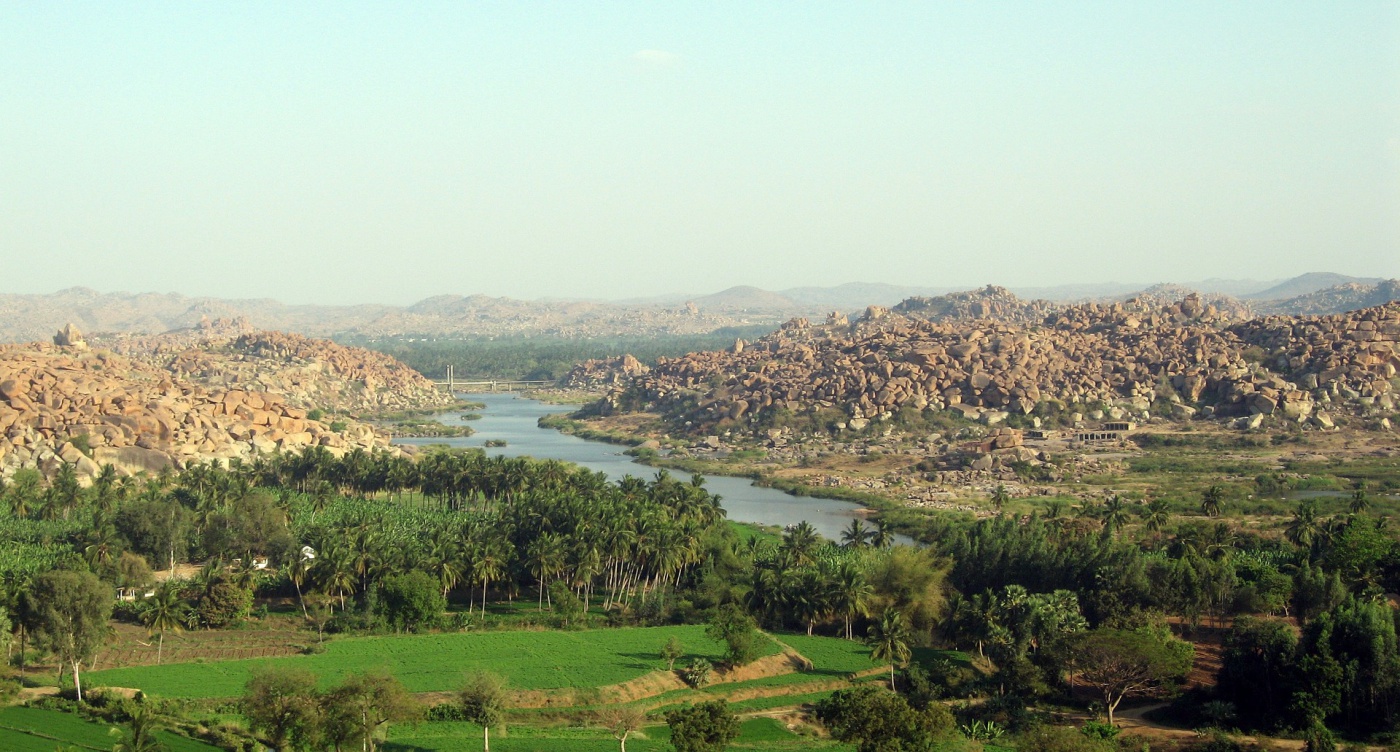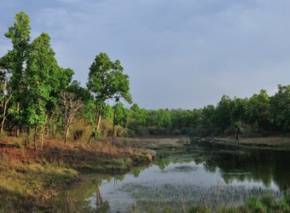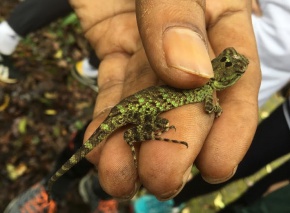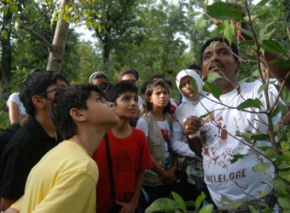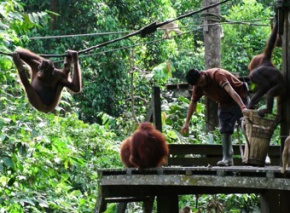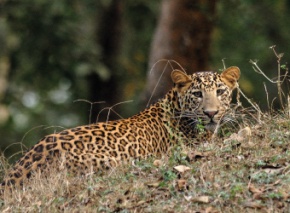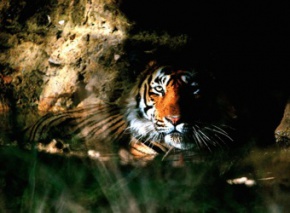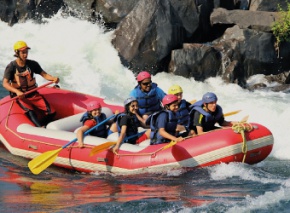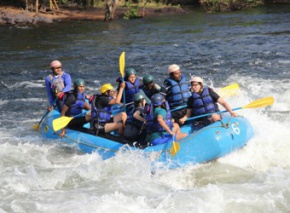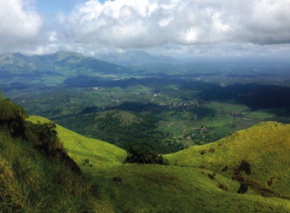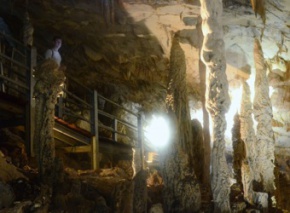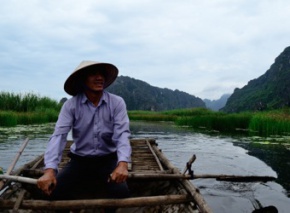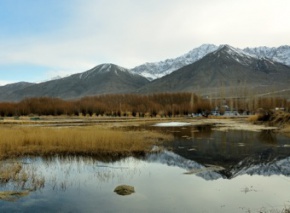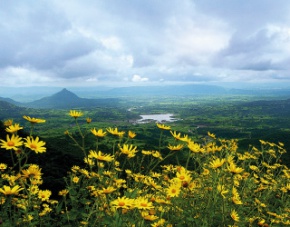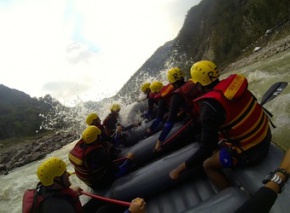
A trip to Hampi should atleast be 4 nights and 5 days so that it allows students to explore the various monuments and experience the activities curated for this module comfortably, with clear learning outcomes.
Given below are a few activities that can be conducted at this destination, along with the appropriate age group. Our forte is customisation, so feel free to select ONE, ALL or ANY combination of the below activities to design a trip unique to your curriculum and experiential learning needs.
Daroji Sloth Bear Sanctuary was exclusively created for the preservation of the Indian Sloth Bear. It is located at a distance of 15 km from the Hampi main site. Locally known as Karadi, the Sloth Bear (Melursus Ursinus) lives in open scrub forests having outcrop of rocks, tumbled boulders and caves as shelter. It is a protected species, listed in the Schedule I of the Indian Wildlife Protection Act, 1972 as well as in the Appendix I of the Convention on International Trade in Endangered Species.
A visit to this sanctuary will provide students a unique opportunity to experience this threatened species in their natural habitat and understand the corresponding conservation issues.
Along with the tour of Holy enclosure and Royal enclosure, we will organise a treasure hunt as part of the internalisation activity. Covering Hemakuta Hill group of monuments, two-storied gateway, Monolithic Ganeshas, Virupaksha Temple and Bazaar.
We shall also visit the Royal center area comprising of the Lotus Mahal, Elephant Stables, Queens Bath and Hazara Rama.
The mock excavation activity will offer students an amazing insight into the world of Archaeology and help them understand as to how discoveries about civilizations are made.
They will learn how finding leads to clues and helps archaeologists form a narrative and get their hands dirty in the process .
This tour will give you a glimpse of the life in village settlements around Hampi and an opportunity to enjoy the stunning landscapes. We will ride on bullock carts as we explore villages, the rural countryside, farms, and ancient cave paintings. We will handicraft organisation and banana plantations.
Chitradurga Fort or as the British called it Chitaldoorg, is a fortification that straddles several hills and a peak overlooking a flat valley in the Chitradurga District, Karnataka, India. The fort's name Chitrakaldurga, which means 'picturesque fort' in Kannada, is the namesake of the town Chitradurga and its administrative district.
CONSERVATION CONCERN
These architectural marvels represent India and the fear of losing them has generated a pressing need for the protection of these monuments. According to the scholars, rampant quarrying and blasting accompanied by the rains have weakened the structures, leading in their damage.
Cracks have been seen on a few other important monuments in the complex as well. Despite of the regulation to stop quarrying, its operation is still a continuous one, mainly in the surrounding villages of Venkatapura and Gudalkere Bukkasagera.
Steps are being taken to conserve this world heritage and the Archeological Survey of India (ASI) hopes to put an end to these illicit practices in the area.

Related Destinations

Region: India
Active Modules: Terrestrial Ecosystem Exploration, Project Based Trips, Life Skills Expeditions

Region: India
Active Modules: Terrestrial Ecosystem Exploration

Region: India
Active Modules: Terrestrial Ecosystem Exploration, Project Based Trips, Service and Sustainability

Region: India
Active Modules: Terrestrial Ecosystem Exploration, Project Based Trips, Service and Sustainability

Region: Borneo
Active Modules: Terrestrial Ecosystem Exploration, Project Based Trips

Region: India
Active Modules: Terrestrial Ecosystem Exploration, Project Based Trips

Region: India
Active Modules: Terrestrial Ecosystem Exploration, Project Based Trips, Service and Sustainability

Region: India
Active Modules: Life Skills Expeditions, Project Based Trips, Service and Sustainability

Region: India
Active Modules: Project Based Trips, Life Skills Expeditions, Service and Sustainability, Terrestrial Ecosystem Exploration

Region: Greece
Active Modules: Marine Ecosystem Exploration, Life Skills Expeditions, Service and Sustainability, Project Based Trips

Region: Borneo
Active Modules: Life Skills Expeditions, Service and Sustainability, Marine Ecosystem Exploration

Region: Borneo
Active Modules: Speleology Expeditions, Life Skills Expeditions, Service and Sustainability

Region: Vietnam
Active Modules: Life Skills Expeditions, Service and Sustainability

Region: India
Active Modules: Life Skills Expeditions, Project Based Trips, Service and Sustainability, Terrestrial Ecosystem Exploration

Region: India
Active Modules: Life Skills Expeditions, Project Based Trips, Service and Sustainability

Region: Thailand
Active Modules: Marine Ecosystem Exploration, Service and Sustainability, Project Based Trips

Region: India
Active Modules: Life Skills Expeditions, Service and Sustainability

Region: India
Active Modules: Life Skills Expeditions, Project Based Trips, Service and Sustainability

Region: India
Active Modules: Life Skills Expeditions, Project Based Trips

Region: India
Active Modules: Marine Ecosystem Exploration, Project Based Trips, Service and Sustainability
